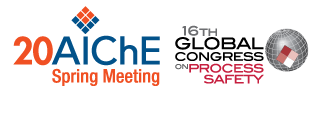

Currently we facing significant increase in water reuse needs due to the several reasons such as, but not limited to climate changes, increase of natural disasters and uncertainty in water supply, lack of water sources, and increase cost of water, tight discharge criteria, regulatory pressure, and corporate mandates. Each project development needs right approach and right strategy.
This presentation will show evolution from not potable to potable water reuse, both Indirect Potable Reuse (IPR) and Direct Potable Reuse (DPR), best practices in water reuse as well as the leading utilities and industries in water reuse. The approach to implement economical water reuse will be presented, how to select the treatment process and several successful water reuse case studies based on the presented approach will be shared.
New Trends in Recovery of Nutrients from Point and Distributed Sources - James Barnard
The use of biological systems for removing nitrogen and phosphorus from used water. These systems are used in some form or another universally. Nitrogen is mostly returned to the atmosphere, but phosphorus can be recovered as struvite or some other re-usable product. The latest research concerns a better understanding of biological phosphorus removal to make the process more reliable to cope with varying wastewater characteristics as influenced by seasonal temperature and rainfall. The present quest is for cost-effective retrofitting of existing plants to remove phosphorus to very low levels. However, achieving greater efficiency at point sources does not solve the major problems of plant nutrients from agricultural run-off, reaching lakes and estuaries. Efforts are made to grow and harvest algae as a means of removing these plant nutrients from receiving water which could result in energy recovery.
Risk-Based Assessment of Refinery and Petrochemical Plant Effluents - Charles Meyer
This presentation will discuss assessment of hazard and risk of effluent discharges from refinery and petrochemical plants in receiving waters. Besides monitoring of conventional (e.g. pH, BOD) wastewater parameters and specific chemical constituents, use of Whole Effluent Toxicity (WET) testing is used extensively in North America to provide a holistic hazard assessment of effluent discharges. Combining this with information on exposure (e.g. dilution, receiving water characteristics) can facilitate an overall risk assessment. Using a tiered approach to risk-based assessment can help to achieve risk to the environment “As Low as Reasonably Practicable†(ALARP) in a way that minimizes unnecessary testing. Use of Toxicity Identification Evaluation (TIE) to help understand causes of toxicity can be used to then develop risk reduction strategies.
Partnership between Rice and City of Houston to Advance Sustainable and Resilient Water Systems - Lauren Stadler
This talk will discuss ongoing collaborative projects between Rice University and the City of Houston related to advancing sustainable and resilient water management. Projects include quantitative modeling to assess the economic and environmental impacts of distributed direct potable reuse; modeling and pilot-scale studies on wastewater treatment plant resiliency to wet weather events; and wastewater monitoring for tracking community infection dynamics. We will highlight the benefits of university-utility collaborations for conducting both applied and fundamental research, and for developing site-specific solutions for water management systems and protecting public health.
Intensifying Treatment and Resource Recovery SWIFTly and Pragmatically at HRSD - Charles Bott
This talk will cover topics ranging from sidestream deammonification implementation at HRSD, recent advancements in mainstream partial denitrification anammox, and the new HRSD indirect potable reuse and aquifer recharge program known as SWIFT. HRSD’s Sustainable Water Initiative for Tomorrow (SWIFT) is a water purification project in eastern Virginia that will further protect the region’s environment, enhance the sustainability of the region’s long-term groundwater supply and help address environmental pressures such as sea level rise and saltwater intrusion. The project will take HRSD’s already highly-treated water that would otherwise be discharged into the Elizabeth, James or York rivers and implement advanced water treatment to produce drinking-quality water. The finished water will then be injected into the Potomac aquifer, the primary source of groundwater throughout eastern Virginia. This could help improve water quality in local rivers and the Chesapeake Bay, while ensuring a sustainable source of groundwater for future generations. In partnership with Virginia Tech and others, HRSD has been piloting potable reuse advanced treatment systems, initially comparing the removal of TOC, pathogens, emerging contaminants and disinfection byproducts in two advanced treatment trains: MF/RO/UVAOP versus Coag/Floc/Sed/Ozone/BAF/GAC/UVD. We continue to perform pilot testing work on the ozone/BAF-based system to address a wide range of research objectives. In addition, HRSD is now operating the SWIFT Research Center (SWIFTRC). This facility includes a 1.0 MGD demonstration-scale advanced treatment system using the ozone/biofiltration-based configuration, a large research laboratory, a flexible and adaptable space to house the advanced treatment pilot systems and soil columns, a recharge well and network of monitoring wells, an extensometer station to measure land subsidence/rebound, and a SWIFT public outreach center.
The Wastewater Industry- Current Trends and Future Direction - R. Benson Pair
This presentation draws on the knowledge and experience of experts in wastewater treatment to offer their insight into the current trends and future direction of the wastewater treatment industry. The wastewater treatment industry is a mature industry, but continues to face technical, regulatory and operational challenges. The insight and perspective of individuals from several facets of the industry has been solicited, including academia, professional societies, consultants, technology and equipment providers, regulators, owner/operators, and design engineers.
Presenter(s)
Language
Pricing
Individuals
| AIChE Member Credits | 0.5 |
| AIChE Pro Members | $19.00 |
| Fuels and Petrochemicals Division Members | Free |
| AIChE Graduate Student Members | Free |
| AIChE Undergraduate Student Members | Free |
| AIChE Explorer Members | $29.00 |
| Non-Members | $29.00 |
